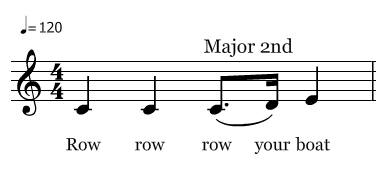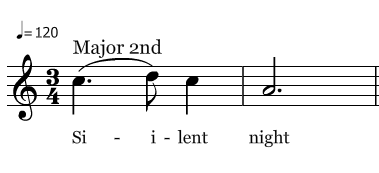Does anyone else listen to WNYC’s radio lab? I thought so. How about when you are on the subway, exercising, cooking dinner, picking your kid up at daycare, or at any other socially acceptable moment? Great!! Looks like I’m in good company.
Recently I heard an archived podcast called “Music Language” and it completely blew my mind. Everyone should listen to it after reading the rest of this blog.
To get things started, here is my definition of perfect pitch…
Perfect Pitch – The ability one has to identify the pitch of a frequency without having the aid of a musical instrument or a reference tone. If I play you a middle C and then follow-up by playing a sequence of notes that you correctly identify, that doesn’t prove you have perfect pitch!!! Even musician and educator worth a damn understands that perfect pitch can NOT be learned.
Well, after listening to “Musical Language” I am not so sure anymore. Cognitive Psychologist and possessor of perfect pitch, Diana Deutsch is very interested in tone languages such as Mandarin Chinese. Languages like Mandarin rely very heavily on tones since the pitch frequency and fluctuation of a word is intimately connected with the meaning. One popular set of words to showcase this is (Mâ, Mā, Mà, and Ma) which can mean mother, hemp, horse, or a reproach depending on the inflection and pitch. This relationship with tone is so hardwired in native speakers that their day to day pitch consistency is identical. Professor Deutsch made audio recordings of people speaking a few chosen words on multiple days and the pitch was indistinguishable one day to the next. See what I mean? Totally mind blowing stuff! It’s like me saying “good morning” everyday but having the frequency sound identical (regardless of whether I am sad, happy, tired, or hungry) every single day. What does this have to do with perfect pitch? In the US and other Western nations only about 1 out of 10,000 people have perfect pitch. People who were raised speaking and listening to a tone language have been shown to be 9 TIMES more likely to have perfect pitch.
My initial reaction: My 8 month old son will only be listening to Mandarin Chinese from here on out.
Let’s alter my original definition …
Perfect Pitch – The ability one has to identify the pitch of a frequency without having the aid of a musical instrument or a reference tone. If I play you a middle C and then follow-up by playing a sequence of notes that you correctly identify, that doesn’t prove you have perfect pitch!!! Even musician and educator worth a damn understands that perfect pitch can NOT be learned(unless you are between 6 and 12 months old and are regularly exposed to a tone language).
So if replicating these notes doesn’t confirm that you have perfect pitch, what is happening? It means you have relative pitch, which can indeed be learned through ear training. If you have a reference note (like the middle C from the definition), hearing the intervals between that note and the others can help you tease out the correct pitches. How does this work?
Let’s use a childhood classic to get a few pitches in our head. The root note is C. When we get to the note D “your”, you should note that the difference between the notes (the interval) is a major 2nd (get that in your ear!).
Now listen to the beginning of “Silent Night”. Same deal, major 2nd.
You can find hundreds of examples of all intervals (ascending, descending, augmented 4ths, Major 7ths, etc.) to exercise your brain and develop relative pitch. For an ascending tritone, think of Bernstein’s “Maria” from West Side Story. A descending perfect 5th? The Flintstones theme! There are also ear training courses like Basic Ear Training 1 and Harmonic Ear Training that will help you develop an incredibly intimate relationship with sound and harmony.
Let me ask you this musicians: Why do you want perfect pitch so badly? What are you missing out on? The folks I know who have perfect pitch tell me that they always hear car horns honking F# or elevators dinging with Db’s. As awesome (and maddening) as that sounds, I will stick with what I can control and develop my ear through ear training. I’ll leave the Mandarin to my son.
-Michael


There’s a book I was reading years ago called “This is Your Brain on Music” that goes over these same concepts. You might want to check it out.
LikeLike
Reblogged this on I Write The Music.
LikeLike